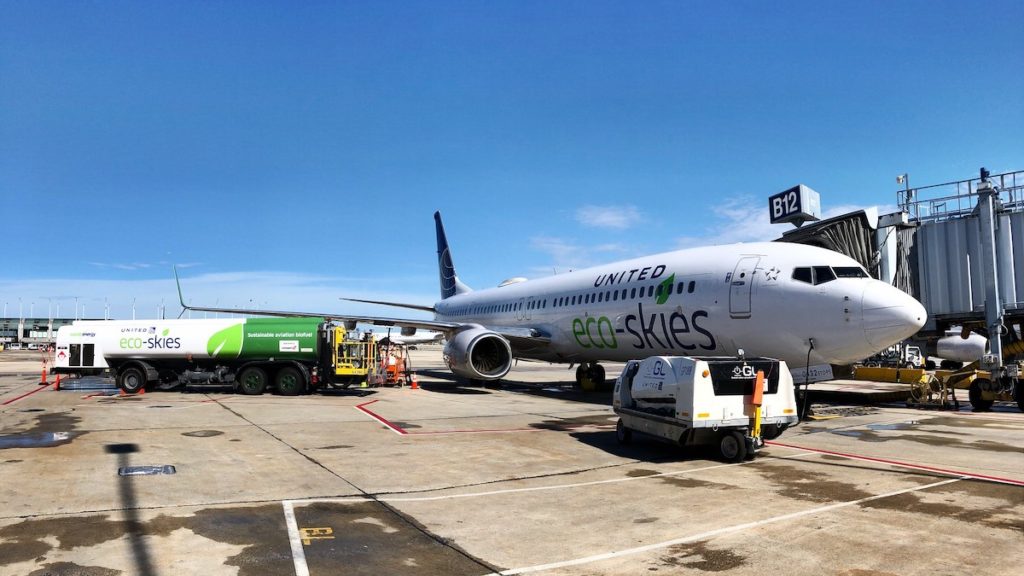“We’re on the cusp of so many significant things that are going to happen in this country — not just in the fuel side, but in the next 10 years,” said Biden.
For example, United Airlines first invested in Fulcrum Bioenergy in 2015 with a 10-year SAF supply commitment that was due to begin in 2017.
European airlines are also mounting pressure on their governments to back SAF production.
Savanthi Syth, an aviation analyst at Raymond James, estimated last June that — barring additional government support — the globe was only on track to produce just 1 billion gallons of SAF annually by the second half of the decade.
A federal tax credit or other incentives could boost SAF production above the 1 billion gallons forecast, Syth added.
The technology exists to create sustainable fuels, which can be derived from a number of feedstocks including wood chips, switchgrass, and municipal solid waste, but significant capital is needed to scale up production.
And electric aircraft, which have a big backing in Silicon Valley, are not expected to reach a level of technology maturation to materially reduce aviation emissions for at least a decade if not more.
Last year, Representative Brad Schneider introduced the Sustainable Skies Act that provide an up to $2 per gallon tax credit for sustainable fuels.
